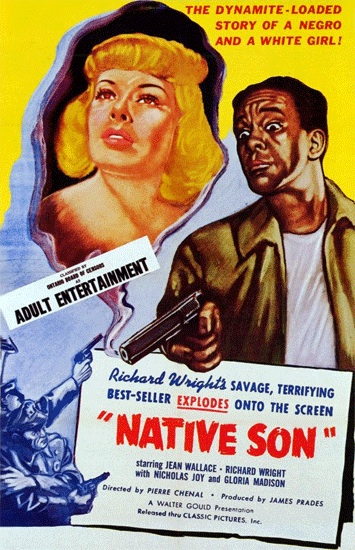Over the weekend The New York Times had two authors of color look back at Richard Wright’s Native Son, which sold “an astonishing 215,000 copies within three weeks” when it appeared 75 years ago. Ayana Mathis and Pankaj Misra help me make sense of a topic that has fascinated me: why is Native Son one of conservative Justice Clarence Thomas’ favorite books. I’ve written about this in the past but have now achieved new clarity.
First a note on Thomas, considered the most radical justice on the Supreme Court and, by critics, the cruelest. He has famously voted against affirmative action and voting protections and in general sides with the wealthy and the powerful against minorities, prisoners, students, voters, and consumers. More than any other justice in a long time, he is willing to override precedent in favor of his vision. Some believe that his uncompromising stances, which early on often made him a minority of one, have had the effect of pulling the entire court to the right. That’s because he has given other conservative justices the courage to go further than they otherwise might have gone.
So why would someone like this be a fan of Native Son. The two New York Times authors talk about Wright’s self-hatred, and I think Thomas has a similar self loathing.
Both Mathis and Misra refer to James Baldwin’s famous charge that Wright gives us a caricature of African Americans rather than actual flesh and blood people. Mathis agrees:
I don’t imagine many black people would have embraced such a grotesque portrait of themselves. Bigger Thomas is a rapist and a murderer motivated only by fear, hate and a slew of animal impulses. He is the black ape gone berserk that reigned supreme in the white racial imagination. Other black characters in the novel don’t fare much better — they are petty criminals or mammies or have been so ground under the heel of oppression as to be without agency or even intelligence. Wright’s is a bleak and ungenerous depiction of black life.
Misra, meanwhile, notes,
[Baldwin’s] main objection to Native Son was that it confirmed the damning judgment on African-Americans delivered by their longstanding tormentors. Damaged by hatred and fear, Bigger Thomas tries to redeem his manhood through murder and rape. But this vengeful cruelty only validates “those brutal criteria bequeathed him at his birth,” reinforcing old degrading notions about black men.
We see only too vividly what happens today when police and vigilantes hold such caricatures. Baldwin wanted more nuance, and Mathis points out that other African American authors delivered. For instance, Zora Neale Hurston in Their Eyes Were Watching God, Jean Toomer in Cane and Ann Petry in The Street gives us African American characters with rich and complex lives.
Seeking to give Wright some credit, Misra observes,
With Bigger Thomas, Wright courageously defied those who would have preferred a milder character, a less provocative commentary on the “problem of the color line” (as Du Bois called it), one that would reassure white readers rather than terrify them.
There are problems with this line of argument, however, which anticipates Eldridge Cleaver’s defense of the novel (and his attack of Baldwin’s critique) that it is better to be feared than to be loved. (I’ve written on that debate here.) But Cleaver himself became a caricature, and Misra can’t defend Wright beyond his time period. She concludes that Native Son
is limited by a circumscribed vision that fails to extend much beyond the novel’s moment in 1940.
That doesn’t keep it from resonating with the Supreme Court justice, however. What Clarence Thomas sees in Bigger Thomas, I think, is his own Black rage. He then projects this rage outward and sees Blacks and other minorities as Biggers needing to be constrained. Clarence’s stances in favor of brutal policemen, prison guards, and government torturers are motivated, I suspect, by his belief that extreme measures are necessary. I have little doubt whose side he would take if any of the cases involving unarmed black men shot by police showed up before the Supreme Court. Bigger is Clarence’s shadow, and what we cannot face up to becomes monstrous in our eyes.
For an example of how to face up to one’s shadow in a healthy way, Misra gives us Baldwin, who is relentlessly honest with himself. Rather than dismiss Native Son altogether, Baldwin realizes that he has a “baffling and dangerous place” within himself. “For who has not hated his black brother?” he asks. “Simply because he is black, because he is brother.”
We might get true justice from Clarence Thomas if he engaged in such introspection. I fear his rage will prevent him from ever getting there.


